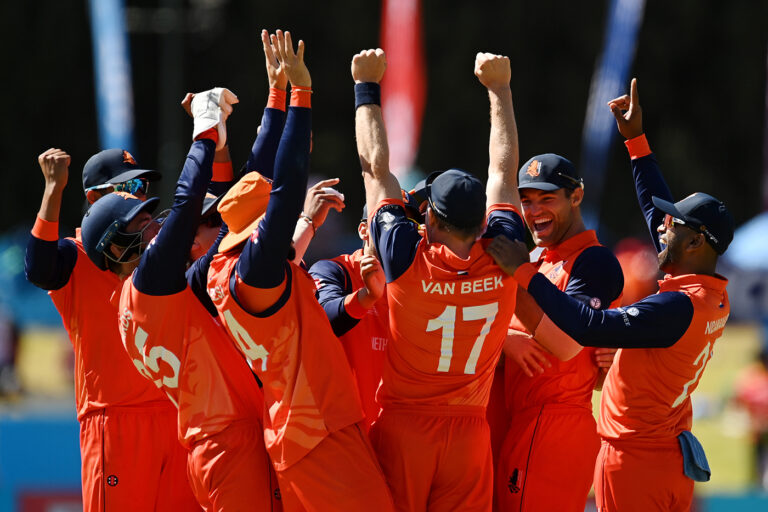Cricket and Cultural Diplomacy: Promoting Understanding Through Sport
11xPlay, Allpaanel: Sports play a vital role in fostering cultural exchange and promoting global unity. Through sports, individuals from diverse backgrounds come together, transcending cultural barriers and forging connections based on mutual respect and shared passion. Whether it is on the field, in the stands, or through participation in sports events, people have the opportunity to engage with one another in a meaningful and impactful way.
The power of sports lies in its ability to break down stereotypes and misconceptions that exist between different cultures. When athletes compete on an international stage, they not only showcase their skills and athleticism but also serve as ambassadors of their country’s values and traditions. By witnessing these sports interactions, spectators gain a deeper understanding of foreign cultures and develop a sense of appreciation for the diversity that exists in the world.
Cricket as a Tool for Building Bridges Between Nations
Sports, particularly cricket, has long served as a unifying force among nations. The spirit of competition and camaraderie that comes with the game transcends borders and fosters connections between diverse cultures. Through cricket, individuals from different parts of the world come together to celebrate the sport, breaking down barriers that may exist due to political or social differences.
Cricket has the unique ability to bring people from various backgrounds together on a common platform, promoting dialogue and understanding. As athletes showcase their skills on the field, spectators witness the talent and passion that transcend nationality. This shared experience creates a sense of unity and mutual respect, paving the way for meaningful interactions that go beyond the boundaries of the game.
The Role of Athletes in Promoting Cross-Cultural Understanding
Athletes play a vital role in promoting cross-cultural understanding through their actions both on and off the field. Their platform as public figures allows them to transcend borders and connect with people from diverse backgrounds. By engaging in friendly competition with athletes from other nations, they demonstrate the universal language of sports that transcends cultural barriers.
Moreover, athletes often serve as cultural ambassadors, embodying the values of teamwork, sportsmanship, and respect that are universally appreciated. Their interactions with fans, fellow athletes, and officials from different countries help break down stereotypes and foster mutual understanding. Through their conduct and achievements, athletes have the power to inspire people from all corners of the globe to come together in the spirit of camaraderie and unity.
How Sports Events Facilitate Interactions Between Different Cultures
Sports events serve as a platform where individuals from diverse cultural backgrounds can come together and bond over their shared love for the game. Regardless of race, religion, or nationality, people unite to support their teams, fostering a sense of camaraderie and mutual respect. These interactions help break down cultural barriers and create opportunities for meaningful exchanges that can transcend societal divides.
Through sports events, participants and spectators are exposed to different traditions, values, and perspectives, promoting a greater understanding and appreciation for cultural diversity. Interactions between individuals from various backgrounds during these events can lead to the exchange of ideas, experiences, and beliefs, fostering a sense of unity and cooperation. This shared experience creates a sense of belonging and highlights the universal language of sports that transcends cultural differences.
The Impact of Cricket Diplomacy on International Relations
Cricket, often referred to as a gentleman’s game, has transcended its identity as a mere sport to become a powerful tool for fostering diplomatic relations between nations. Through the shared passion for cricket, countries have found common ground and strengthened their ties, leading to improved communication and understanding. The sport has acted as a unifying force, bringing together people from diverse cultural backgrounds and promoting dialogue that goes beyond political boundaries.
The use of cricket diplomacy has proven to be particularly effective in easing tensions and bridging divides between nations with historical conflicts. By engaging in friendly cricket matches and tournaments, countries have been able to set aside differences and focus on the spirit of sportsmanship and camaraderie. This shared experience on the cricket field has laid the foundation for building trust and cooperation in other areas of international relations, demonstrating the profound impact that sports can have in promoting peace and understanding.
Examples of Successful Cultural Diplomacy Through Cricket
In recent years, cricket has emerged as a powerful tool for fostering cultural diplomacy and strengthening international relations. One notable example is the “Cricket for Peace” initiative between India and Pakistan, where cricket matches have served as a platform for promoting dialogue and goodwill between the two nations. These matches not only bring together players and fans from both countries but also create opportunities for people-to-people interactions that transcend political barriers.
Another successful example of cultural diplomacy through cricket is the collaboration between Australia and South Africa in the Nelson Mandela Legacy Cup. This annual event honors the legacy of the late South African leader and promotes unity and reconciliation through sport. By bringing together players from diverse backgrounds and fostering a spirit of sportsmanship, the Nelson Mandela Legacy Cup showcases how cricket can be a catalyst for building bridges and promoting mutual understanding between nations.
Challenges Faced in Using Sports for Promoting Understanding
Navigating cultural nuances and sensitivities can pose significant challenges when utilizing sports as a tool for promoting understanding between nations. Misinterpretations or miscommunications can easily occur, leading to unintended conflicts or tensions. Additionally, disparities in resources and access to sporting opportunities can create barriers to effective cross-cultural engagement through sports.
Moreover, the potential for sports to be politicized or used as a platform for ulterior motives adds another layer of complexity to the promotion of understanding between different cultures. This politicization can overshadow the spirit of sportsmanship and mutual respect, hindering genuine efforts to foster meaningful connections and dialogue.
The Power of Sports in Breaking Down Stereotypes and Misconceptions
Sports have a unique ability to break down stereotypes and misconceptions by providing a platform for individuals from different backgrounds to come together and collaborate towards a common goal. Through the universal language of sports, people can bypass cultural barriers and connect on a shared passion, fostering mutual understanding and respect.
By engaging in sports activities, individuals have the opportunity to interact with others who may have different beliefs, customs, or traditions. These interactions help dispel prejudices and misconceptions, as athletes learn to appreciate the diversity of perspectives and experiences that contribute to the rich tapestry of humanity. Through sports, people can build relationships based on mutual respect and cooperation, paving the way for greater unity and harmony in an interconnected world.
Ways in Which Cricket Promotes Mutual Respect and Cooperation
Cricket, as a sport that requires collaboration and teamwork, has the ability to foster mutual respect and cooperation among individuals from different backgrounds. The shared goal of achieving success on the field encourages players to work together, despite any cultural or national differences they may have. Through playing alongside one another, cricket players learn to appreciate each other’s strengths and contributions, leading to a greater sense of respect and unity within the team.
Moreover, cricket matches often serve as a platform for cultural exchange, allowing players to interact with opponents from various countries. This direct interaction promotes understanding and empathy, as athletes have the opportunity to learn about each other’s customs, traditions, and values. By engaging in friendly competition on the cricket field, players develop a deeper appreciation for diversity and build bridges of cooperation that extend beyond the boundaries of the sport.
Future Opportunities for Enhancing Cultural Diplomacy Through Sport
One promising future opportunity for enhancing cultural diplomacy through sports lies in the expansion of sports exchange programs. By increasing the frequency and scale of international sports events, more athletes and fans will have the chance to interact with individuals from different cultural backgrounds, fostering mutual understanding and respect. Moreover, organizing joint training camps and friendly matches between teams from diverse nations can create lasting partnerships that transcend borders and promote peaceful collaborations.
Another avenue for enhancing cultural diplomacy through sport is the utilization of digital platforms for virtual sports competitions and cultural exchanges. With the advancement of technology, it is now easier than ever to connect individuals worldwide through online gaming and virtual sports events. By leveraging these platforms, countries can engage in friendly competitions, share their sporting traditions, and learn about each other’s cultures in a fun and interactive way. This digital approach opens up endless possibilities for strengthening cross-cultural bonds and promoting international cooperation through the universal language of sports.







